Peace, Justice, and Human Rights
Rights at the Edge
November 2-4, 2017
Organized by Adam Rosenblatt
PJHR - Events - Rights at the Edge Banner

A gathering that showcases how scholars, activists, educators, and creators are pushing the "edges" of the human rights framework—seeking to extend the guarantees of human rights policy more broadly while also challenging us to rethink the boundaries of the "human" for a new century. Interlocking topics of engagement include human rights pedagogy, refugees, species, race, disability, children, older persons, and the dead.
Free and open to the public. Organized by Adam Rosenblatt, Visiting Assistant Professor of Peace, Justice, and Human Rights, Haverford College. Sponsored by the Concentration in Peace, Justice, and Human Rights, the Center for Peace and Global Citizenship, the John B. Hurford '60 Center for the Arts and Humanities, the Office of the Provost, and the Distinguished Visitors Fund.
Contact: arosenblat [at] haverford.edu
Schedule
Thursday, November 2
12:00-2:00 p.m.
CPGC-sponsored Lunch with Diya Abdo about “Every Campus a Refuge”
Every Campus A Refuge: A Small College’s Civic and Curricular Engagement with Refugee Resettlement
Inspired by Pope Francis’ call on every European parish to host one refugee family, Guilford College’s Every Campus a Refuge (ECAR) initiative advocates for mobilizing campus resources to temporarily house refugees on campus grounds and assist them in resettlement in the local area. Thus far, Guilford has hosted and assisted in resettling 32 refugees from the Middle East and Africa, 18 of them children. The ECAR minor (16 credits) curricularizes the educational and experiential components of the initiative. This talk will outline the project’s work—including challenges and lessons learned—and allow attendees to explore adapting this flexible initiative to their campus
4:30-6:00 p.m.
Panel: Human Rights Pedagogy and Practice
Stokes Auditorium 131
Facilitated by Eric Hartman, Executive Director of the Center for Peace and Global Citizenship, Haverford College
Faculty members who engage rights and advocacy work in the classroom will discuss approaches to their work within the curriculum, including how they approach questions such as balancing course needs with social movement processes, how they navigate political questions and challenges, and lessons and aspirations at the intersection of critical inquiry and consequential action. The panel includes:
- Diya Abdo, Guilford College, Associate Professor of English
- Bethany Barratt, Roosevelt College, Associate Professor of Political Science and Director of the Joseph Loundy Human Rights Project
- Maureen O'Connell, La Salle University, Associate Professor of Christian Ethics and active member of POWER (Philadelphians Organizing to Witness, Empower, and Rebuild)
- Juli Grigsby, Assistant Professor of Anthropology, Haverford College
6:30-8:00 p.m.
Symposium Dinner
Bryn Mawr Room, Haverford College Dining Center
8:00-9:30 p.m.
Opening of Brian Palmer and Erin Hollaway Palmer's photography exhibit All Our Sorrows Heal: Reclaiming the Past at East End and Evergreen Cemeteries, Richmond and Henrico County, Virginia.
Sharpless Gallery, Magill Library
Friday, Nov. 3
All events on Friday before dinner are in Whitehead Campus Center 205, B & C
9:00-10:30 a.m.
Panel 1: Refugee Rights, Aid, and Representations
Araceli (Arancha) Garcia del Soto, "Refugees: From Stereotypes to Solidarity and Accompaniment"
This presentation draws on data from the last three years to contrast stereotypes and misconceptions of refugees in Europe with empirical data and observations from humanitarian work. It describes ways of working with refugees as a form of "accompaniment," by sharing their voices and priorities through photographic images they take themselves. It ends by comparing current forms of solidarity work with those seen in other contexts in the last 20 years.
Amanda Levinson, Repairing Humanitarian Aid: Grassroots Innovation & Technology
Our systems of humanitarian aid haven't changed in nearly 60 years, and governments and big INGOs cannot meet the growing needs of the massive numbers of displaced peoples worldwide. The emergence of grassroots and civil society response to the refugee crisis in Europe provides an excellent example of emerging, alternative models to aid, and opportunities for all of us to help repair it.
Angela Naimou, Contemporary Literature and Refugee Time
I’ll look to the fiction and poetry of contemporary Iraqi diasporic writers whose literary forms imaginatively meddle with refugee times and spaces. As these writers challenge conventional representations of refugee displacements, they also prompt us to rethink the categories and experiences of refugees and asylum seekers.
10:30-10:45 a.m.
Coffee Break
10:45 a.m.-12:15 p.m.
Panel 2: The Ages of Rights: Children and Older Persons
Bethany Barratt, Respect and Seniority: Revealing and Overcoming Threats to Older Persons’ Rights
Description: Despite being disproportionately active contributors to the cultural, political, and economic life of societies, older persons face unique challenges to full enjoyment of their civil, political, economic, and social human rights. What’s more, these challenges are seldom discussed and often occur in the private sphere, preventing adequate legislative and legal redress of these challenges. Not only does society face a pressing moral imperative to address this state of affairs, but also a practical one as older persons make up an increasing proportion of the global population
Jill Stauffer, Judging Child Soldiers: who is responsible for global violence?
Looking at how law judges child soldiers may help us understand what we think responsibility is and who bears it. Considering the contexts in which child soldiers operate may, in turn, start to unravel settled ideas about who bears responsibility for complex harms—and teach us something about our ideas about both rights and childhood.
12:30-1:45 p.m.
Lunch
Whitehead Campus Center 313
1:45-3:15 p.m.
Panel 3: Species, Ability, Race: Contested Constructions of Humanity and Human Rights
Thomas Donahue, “Animal Rights or Dirty Hands? Reflections from the Tannery”
In animal ethics, should we see animals and humans as individual rights-bearers interacting with each other on what should be equal terms? Or do we do better to see animals as rights-bearing collectives, and animal ethics as a matter of how different collectives should treat each other, often involving tragic choices among the lesser of two evils? This talk explores the second, dirty-hands, approach. It does so from a perspective that is usually overlooked and ignored in animal ethics: that of people who spend their days working with or producing animals' skins and meat.
Claire Jean Kim, Murder and Mattering in Harambe’s House
This talk approaches the controversy over the killing of the gorilla Harambe in the Cincinnati Zoo in May 2016 as a unique window onto the making of animalness and blackness in the contemporary U.S. The construction of the “human” in relation to both the “animal” and the “black” is explored.
Kristin Lindgren, Deafness and Disability at the Edge
Disability often functions as a category that demarcates the boundaries of the human. In eighteenth-century Europe, deaf people were objects of cultural fascination and philosophical speculation about language, reason, and what defines us as human; along with so-called wild children and orangutans, they were offered as examples of the natural man. In contemporary thought and culture, the figure—or specter—of disability is often invoked in debates about personhood and rights. In particular, those who are intellectually disabled or neurodivergent, or who communicate in non-normative ways, are often deployed to define the edges of language, the edges of human.
3:15-3:30 p.m.
Coffee Break
3:30-4:45 p.m.
Panel 4: The Rights of the Dead and the Right to Mourn
Osman Balkan, The Right to Have Rites: Burying "Unwanted" Bodies
In recent years many states have faced dilemmas about what to do with the bodily remains of individuals that commit violent acts within their borders. The controversies surrounding "Boston Bomber" Tamerlan Tsarnaev's burial, French efforts to export the corpses of the perpetrators of the Charlie Hebdo attacks, the creation of a "Cemetery of Traitors" to inter the remains of coup plotters in Turkey, and the secret burial of Osama Bin Laden in the Arabian Sea highlight the ways in which states and other actors are invested in managing the political afterlives of "unwanted bodies." Recognizing that burial is a symbolically charged practice that demarcates individual and collective identities, this presentation explores how the constitution, consolidation, and territorialization of national, religious, and political communities is related to the governance of the dead.
Isaias Rojas-Perez, (Hand)Writing the Aftermath and Mourning without the Body in Peru’s Postwar Andes
Reflecting ethnographically on subaltern forms of truth-making and coping with legacies of state terror among Quechua-speaking mothers of the disappeared in Peru, this paper asks how it is that the anthropological text might bear witness to experiences of mourning without the body in the aftermath of mass atrocity.
Brian Palmer and Erin Hollaway Palmer, The Afterlife of Jim Crow
We will discuss the rise, decline, and ongoing restoration of two historic African American cemeteries in Virginia in the context of segregation and resurgent white supremacy.
5:00-5:45 p.m.
Sharing of Final Reflections
Saturday, Nov. 4
Stokes 102. Register by Tuesday, October 31.
10:30 a.m.-3:30 p.m.
Workshop - Araceli Garcia del Soto, Solidarity & Fear: Stereotyping Radicals and Refugees in Times of Confusion
Collective ideas on radicalization, migration and refugees, fear, and solidarity have been exposed to dramatic changes after 9/11. This workshop is double-edged:
First, we will provide data and concrete examples of the current practices when working with refugees in Europe, and we will discuss various possibilities regarding how to support and accompany them. Second, we will talk openly about recent terrorist attacks and hate crimes (e.g., Charlottesville & Barcelona), to describe applied research on the psychological and social profiles of the perpetrators of violence.
Ultimately, we will share reflections and approaches on current violent scenarios to analyze the interests and emotions underlying polarization and hate, as well as the strategies that are used to balance those to avoid violence.
Participants will engage in group work, discussions, and practical tasks to become familiar with refugee work and the policies that support such persons internationally, as well as in polarization scenarios that defy basic human rights both locally and internationally.
Participants
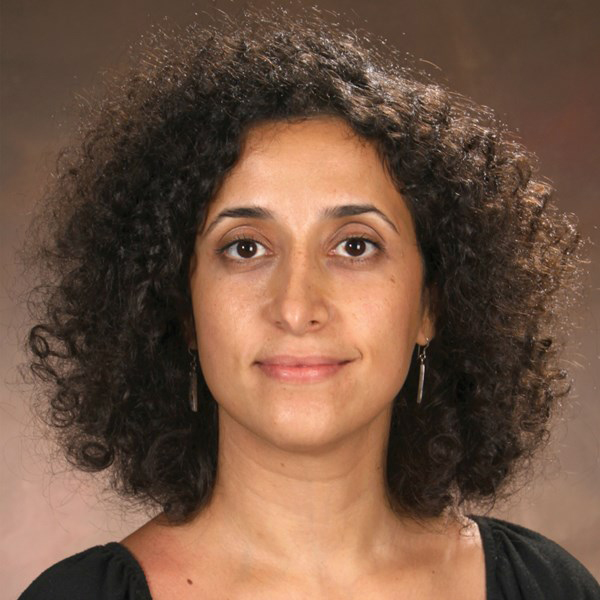
Diya Abdo
Diya Abdo is associate professor of English. She is the founder and director of Every Campus a Refuge, a Guilford College Center for Principled Problem Solving initiative which advocates for housing refugees on campus grounds and assisting them in resettlement. Thus far, Guilford College has hosted 32 refugees (18 of them children) from the Middle East and Africa on its campus and assisted them in resettlement in Greensboro. Dr. Abdo's teaching, research and scholarship focus on Arab women writers and Arab and Islamic feminisms with a particular interest in Arab women writers’ narrative strategies, life writing, and the cross-cultural translation of autobiography. She has also published poetry, fiction and creative nonfiction. Her public essays focus on the intersection of gender, political identity, and vocation.
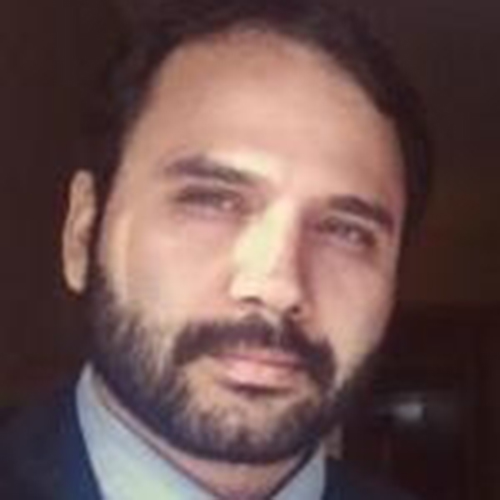
Osman Balkan
Osman Balkan is a visiting assistant professor in the Department of Political Science at Swarthmore College. He received his B.A. from Reed College and his Ph.D. from the University of Pennsylvania. His research and teaching interests include the politics of migration and citizenship, transnationalism and diasporas, Islam and Muslims in the West, race and ethnicity, biopolitics, and necropolitics. Balkan's work is situated at the intersection of comparative politics, political theory, and cultural anthropology. He employs ethnographic and qualitative methods to understand how politics is experienced and interpreted by ordinary citizens in their everyday lives. His current research explores how the governance of the dead is linked to the construction of the nation and the enactment of sovereign power. Understanding sovereignty as an effect of practices that target the body and adjudicate issues of life and death, it investigates how the constitution, consolidation, and territorialization of national and political communities is related to the management of dead bodies.
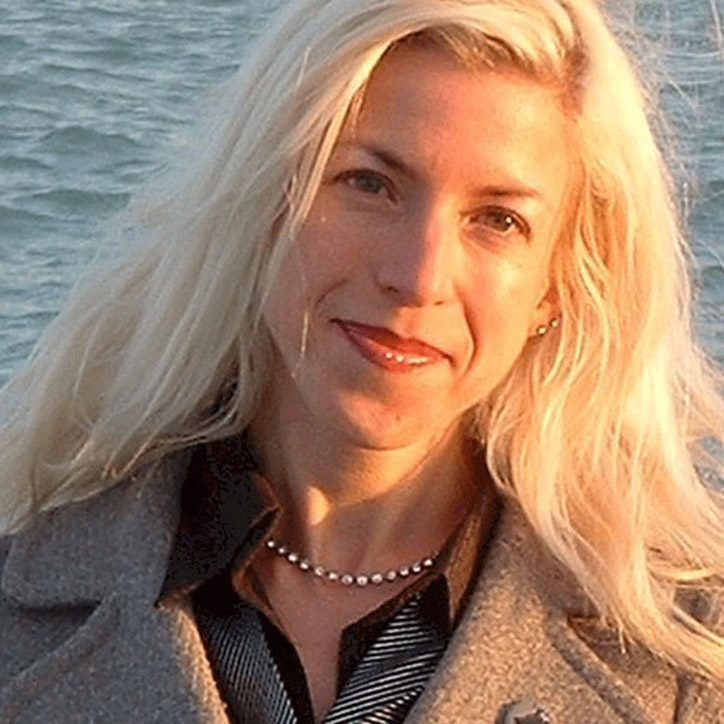
Bethany Barratt
Bethany Barratt is the Director of the Joseph Loundy Human Rights Project, which is a community program in Chicago and cities abroad that uses comparative lessons to make measurable gains in respect for human rights in urban settings. Professor Barratt has conducted archival and field research in Yellowstone National Park, Central Asia, the UK, Canada, and Australia. She is author or editor of several books including “Human Rights and Foreign Aid” (Routledge, 2007), "The Politics of Harry Potter" (Palgrave McMillan, 2012), and coeditor of "Public Opinion and War: Lessons from Iraq" (Potomac, 2012). She has also authored articles on environmental politics and justice, conservation policy, human rights, foreign aid, US, British, Canadian, and Australian foreign policy, and counterterrorism, in Political Research Quarterly, The Journal of Homeland Security and Emergency Management, and edited volumes from Ashgate and Lexington Books. Besides her teaching experience at Roosevelt and the University of California, she has also taught in prisons and correctional facilities.
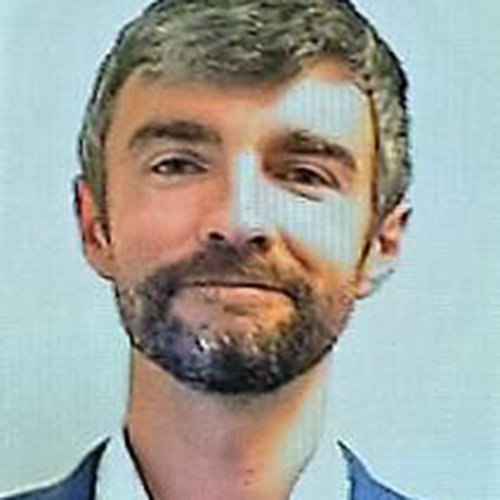
Dr. Thomas J. Donahue
Dr. Thomas J. Donahue is Visiting Assistant Professor of Political Science at Haverford College. His current research examines the structure of injustices in global, comparative, and historical perspectives. He has published on arguments against the view that humans are the only bearers of instrinsic value, and on the ethics of dirty-hands tactics, especially terrorism. His publications have appeared in Ethics and the Enivronment, The European Journal of Political Theory, The Philisophical Forum, Public Affairs Quarterly, and NEXOS. He is currently completing a book manuscript, entitled “Unfreedom For All: How Global Injustices Harm You.”
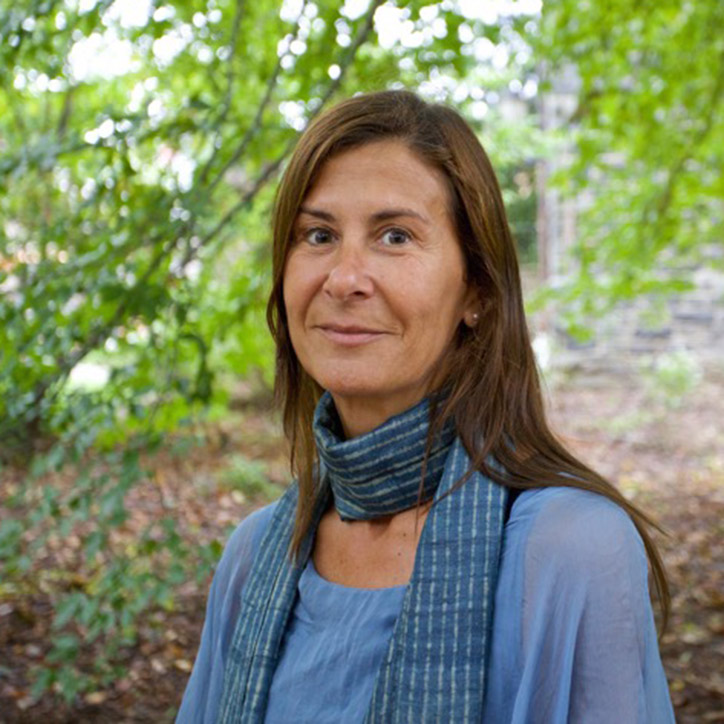
Araceli Garcia del Soto
Araceli Garcia del Soto holds a Ph.D. in sociology from the University of Salamanca in Spain. Garcia del Soto is affiliated with the Institute of Humanitarian Affairs at Fordham University and was previously the director of refugee initiatives at the Solomon Asch Center for the Study of Ethnopolitical Conflict at the University of Pennsylvania. Garcia del Soto has lectured worldwide on humanitarian programs and psychosocial interventions with populations affected by violence. She has collaborated with international NGOs and local community organizations, and implemented projects in the Balkans, West Africa, Latin America, Iraq and Sri Lanka (e.g. Equitas with the families of the missing in Colombia since 2004, or Melissa in Greece with Migrant and Refugee women). She additionally worked at Haverford College in 2012 as the ‘Global leader for Peace’, where she led various workshops and academic talks concerning approaches to discrimination and global humanitarian efforts.

Juli Grigsby
Juli Grigsby is an U.S. based Anthropologist - her areas of expertise include critical race theory, feminist and queer theory, urban ethnography, violence, women’s health and U.S Social Movements. The past recipient of Davis Putter Fellowships and a Humanities, Arts, Science, Technology & Advanced Collaboratory Scholar (HASTAC) her photographic work has appeared in the Black California Dreamin’ journal and at the Metro Art Gallery in Pomona, California. Her current book project is Grim Sleeper: Gender, Violence, and Reproductive Justice in Los Angeles, which explores black women’s experiences of structural violence and black women’s commitment to social transformation through reproductive justice.
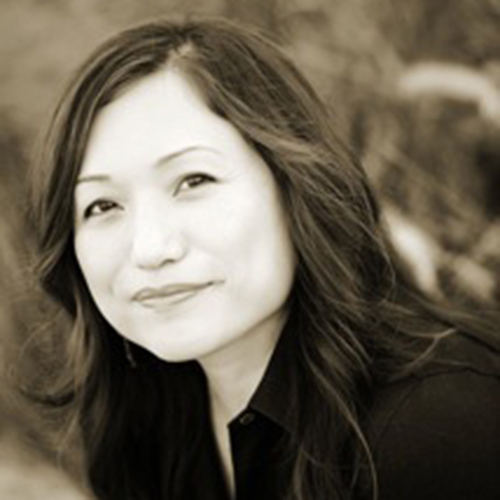
Claire Jean Kim
Distinguished Visitor Claire Jean Kim is Professor of Political Science and Asian American Studies at the University of California, Irvine. Her first book, Bitter Fruit: The Politics of Black-Korean Conflict in New York City (Yale University Press, 2000) is the recipient of the American Political Science Association's Ralph Bunche Award for the Best Book on Ethnic and Cultural Pluralism and a Best Book Award from the American Political Science Association Organized Section on Race, Ethnicity, and Politics. Her second book, Dangerous Crossings: Race, Species, and Nature in a Multicultural Age (Cambridge University Press, 2015), is the also the recipient of a Best Book Award from the American Political Science Association Organized Section on Race, Ethnicity, and Politics. Dr. Kim has written numerous journal articles, book chapters, and essays, and she is co-editor of a special issue of American Quarterly entitled Species/Race/Sex (2013). She is the recipient of a grant from the University of California Center for New Racial Studies, and she has been a fellow at the Institute for Advanced Study in Princeton, New Jersey and the University of California Humanities Research Institute. Her teaching and research interests are in comparative race studies and human-animal studies.
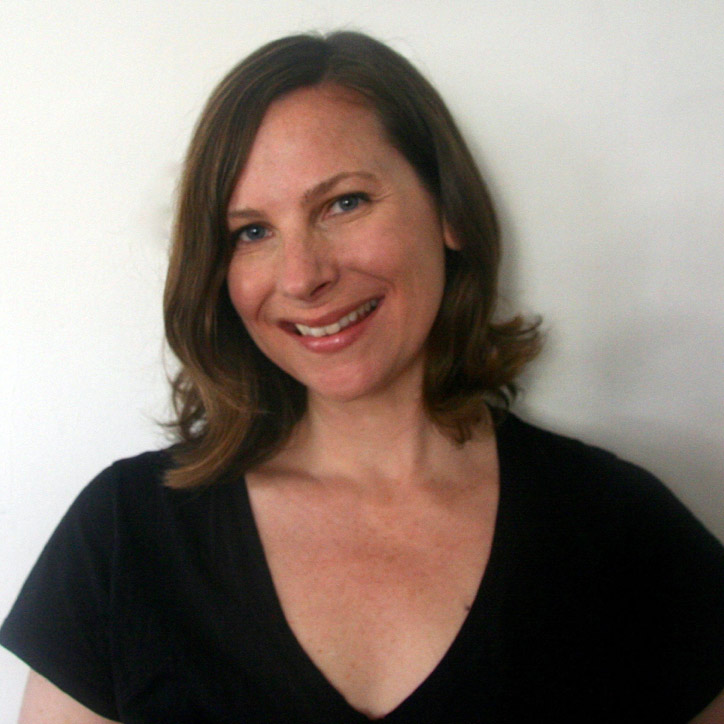
Amanda Levinson
Amanda Levinson is the co-founder of NeedsList, a marketplace for humanitarian aid that lets people purchase supplies or volunteer for the most effective grassroots groups working with displaced people in Europe and the US.
Amanda is a social entrepreneur with 20 years of experience helping to launch, scale, and sustain social good ventures. She's especially interested in the uses and limits of technology to solve some of the world's biggest problems, and believes wholeheartedly in designing solutions with the people who will benefit from them.
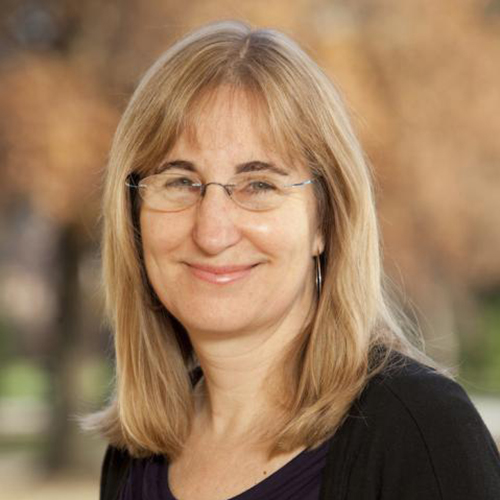
Kristin Lindgren
Kristin Lindgren has co-edited two collections of essays about Deaf culture, Signs and Voices and Access, and published widely on disability arts and culture. She has contributed chapters to numerous books, includingGendering Disability, Illness in the Academy, Disability and the Teaching of Writing, and Transforming the Academy. Her current research focuses on Deafness in Enlightenment Europe. At Haverford, she directs the Writing Center and teaches courses in writing and critical disability studies.
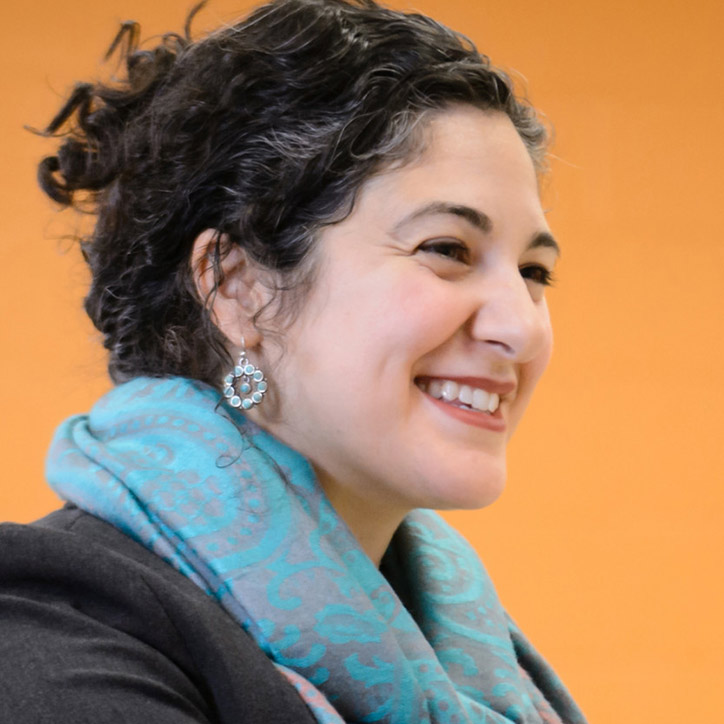
Angela Naimou
Angela Naimou is an Associate Professor of English at Clemson University. Her first book, Salvage Work: U.S. and Caribbean Literatures amid the Debris of Legal Personhood (Fordham 2015), won the Association for the Study of the Arts of the Present (ASAP) Book Prize for best study of the contemporary arts.Salvage Work also earned Honorable Mention from the Modern Language Association’s William Sanders Scarborough Prize for outstanding scholarly study of African American literature or culture. She edited the Dossier on Contemporary Refugee Timespaces, forthcoming in Humanity Journal (Winter 2017), which features contributors across the social sciences and humanities on refugee crises and related practices of illegality and deportation. Her current book project considers refugee timespaces in contemporary literature and humanitarian practice and policy.
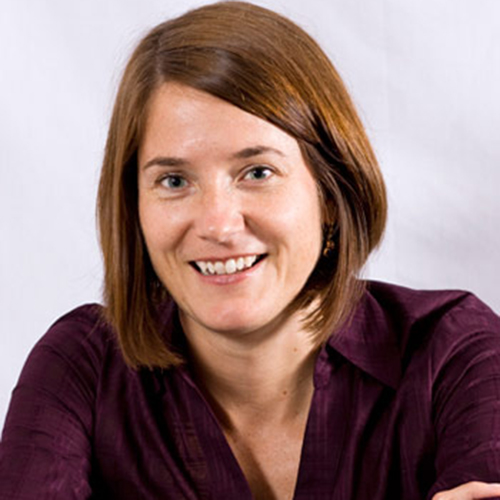
Maureen O’Connell
Maureen O’Connell is an associate professor and chair of the Department of Religion at LaSalle University. She previously taught at Fordham University from 2005 to 2013. Her areas of expertise include Christian/Catholic social ethics, the arts and social justice, and racism and racial justice; her current research project explores racial identity formation, racism, and racial justice in Catholic institutions of higher education. O’Connell’s publications include If These Walls Could Talk: Community Muralism and the Beauty of Justice (2012), She Who Imagines: Contemporary Feminist Aesthetics (2012, ed. with Laurie Cassidy),Religion, Economics and Culture in Conflict and Conversation (2011, ed. with Laurie Cassidy), and Compassion: Loving Our Neighbor in an Age of Globalization (2009), as well as numerous journal articles. She serves on the board of the Society for the Arts in Religious and Theological Studies and is vice president of the College Theology Society. O'Connell holds a B.A. from Saint Joseph’s University and a Ph.D. from Boston College. She is also an active member of POWER (Philadelphia Organized to Witness, Empower, and Rebuild) a faith-based community organizing affiliate of the PICO network.
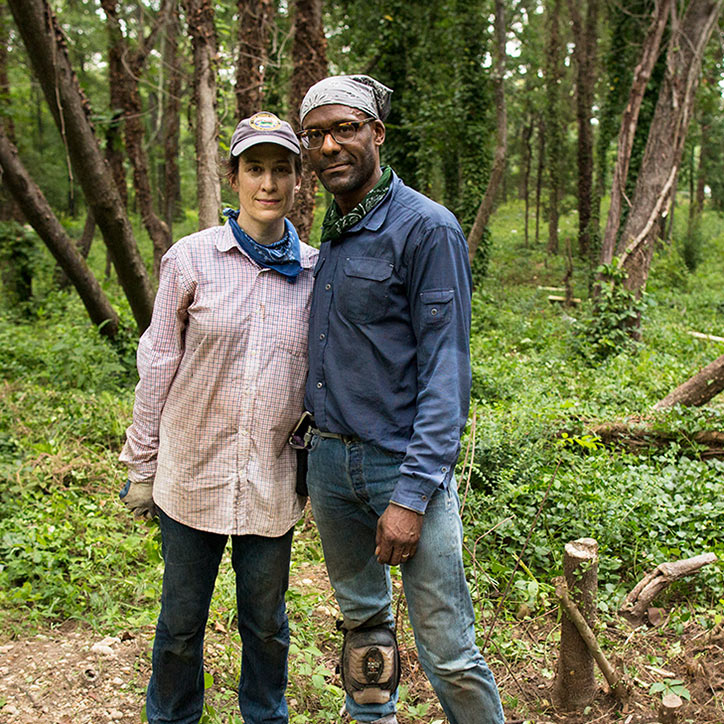
Brian Palmer and Erin Hollaway Palmer
Brian Palmer and Erin Hollaway Palmer moved to Virginia in 2013 from Brooklyn, New York, to produce Make the Ground Talk, a documentary that traces their journey to reveal the story of a vanished black community near Williamsburg. It was this project that led them to East End Cemetery, an African American burial ground that has suffered from decades of neglect. Brian and Erin are members of the volunteer cleanup effort and are documenting the history and the restoration of the cemetery. They recently received a grant from Harvard University’s Dumbarton Oaks Research Library and Collection to create a website for their photo documentation of East End.
Brian is an independent visual journalist. Before going freelance in 2002, he served in a number of staff positions—photographer, assistant editor, Beijing bureau chief (US News & World Report); writer (Fortune); correspondent (CNN). In 2009, he completed Full Disclosure, a documentary about his three embeds in Iraq with U.S. Marines. Brian has taught at Hampton University, the University of Richmond, and the School of Visual Arts in New York, among others, and is now an adjunct at VCU. Erin is an independent editor, writer, and educator. In New York, she was managing editor of Parade and National Geographic Adventure magazines. Currently, she edits for a number of publications and nonprofits, volunteers as an adult literacy tutor, and serves as communications manager for a new community arts center in Richmond.
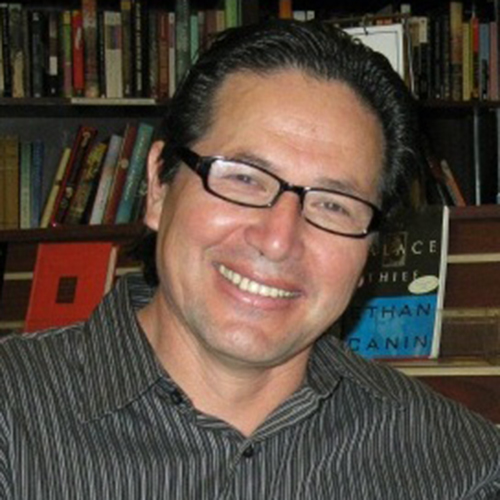
Isaias Rojas-Perez
Isaias Rojas-Perez is an Associate Professor of Anthropology at Rutgers-Newark. His research interests include a variety of topics in social and cultural theory, focusing on sovereignty, governmentality, violence, rights, time and memory, the materiality of politics and the politics of materiality, and the ritualization of death in Andean Peru. These research interests draw from his previous long term work as professional human rights activist in Peru, during the worst moments of the 1980s and 1990s armed conflict between the Peruvian military and the Maoist Shining Path, as well as several years of fieldwork in former worn-torn areas of rural Andean Peru. His recent book is Mourning Remains: State Atrocity, Exhumations, and Governing the Disappeared in Peru’s Postwar Andes (Stanford University Press, 2017). Focusing on the Andean region of Ayacucho, Peru, this book examines the attempts to find, recover, and identify the bodies of the disappeared during the 1980s and 1990s counterinsurgency campaign in Peru's central southern Andes. More specifically, Mourning Remains looks at the ways elderly Quechua mothers engage forensic exhumations of mass graves as part of their longtime struggle in search for their missing loved-ones. Rojas-Perez has also authored several works on transitional justice and reconciliation in Peru, such as “Memories of Reconciliation. Photography and Memory in Postwar Peru” (NYU 2011), and “Writing the Aftermath. Anthropology and Post Conflict in Latin America” (Blackwell Publishing LTD 2008).
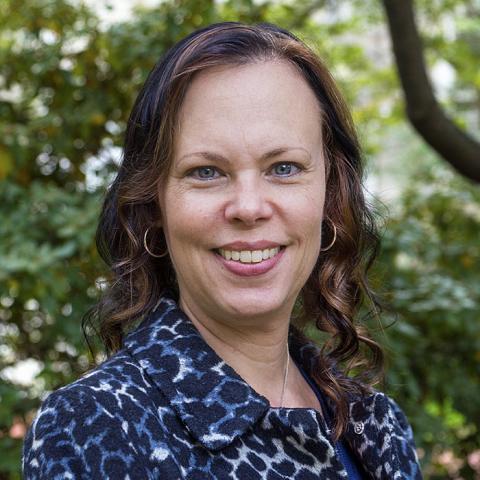
Jill Stauffer
Before coming to Haverford College to create a new interdisciplinary human rights theory program for undergraduates, Jill Stauffer taught at Amherst College in Massachusetts in the department of Law, Jurisprudence and Social Thought, and in the Philosophy department at John Jay College of Criminal Justice/CUNY in New York. Stauffer is on the Board of Directors for the non-profit book series Voice of Witness, which illuminates human rights crises through the stories of the men and women who live through them. Her academic interests include philosophy of law, political philosophy, continental philosophy, and ethics. She has published widely on the international reach of rights, personal and political responsibility, political reconciliation, and the rule of law. Her edited volume, Nietzsche and Levinas: After the Death of a Certain God, was published by Columbia University Press in 2009. Her book Ethical Loneliness: The Injustice of Not Being Heard was published by Columbia University Press in 2015.
Organizers
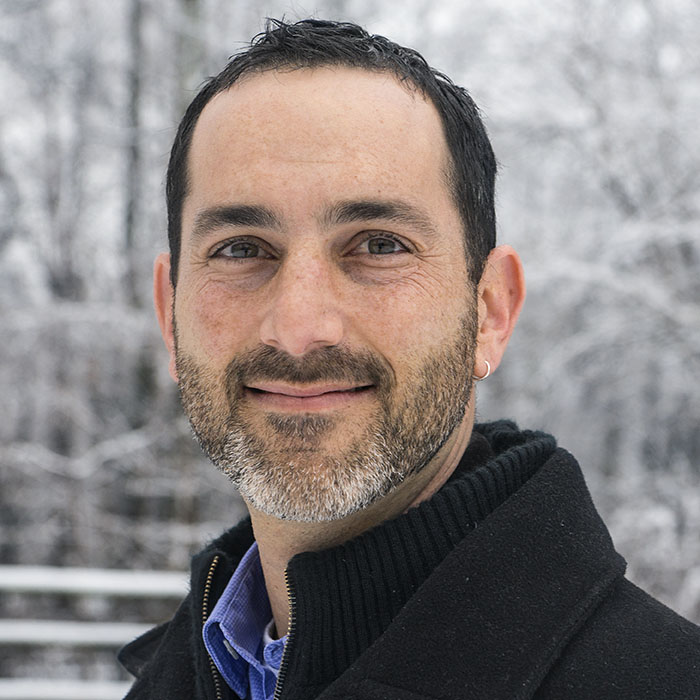
Adam Rosenblatt: Organizer
Adam Rosenblatt is an interdisciplinary scholar of human rights and humanitarianism with a background that combines political theory, anthropology, and other fields such as science and technology studies. His writing and teaching focuses on the everyday practice of human rights activism and the outer edges of human rights discourse: the dead, animals, children, neurodiversity and disability. He is also interested in the measurement and quantification of human rights work, and intimate acts of care (whether at a mass gravesite or in a preschool) that receive neither the attention nor the ethical reflection reserved for more quantifiable goals.
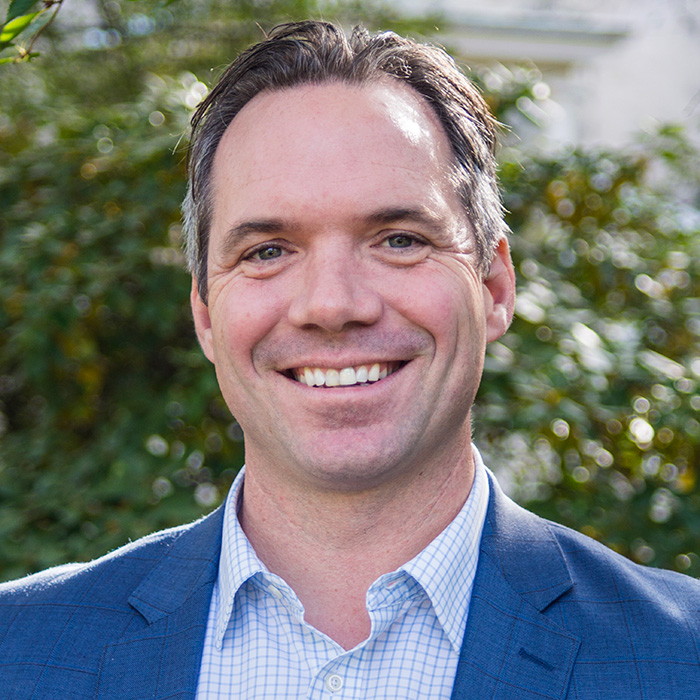
Eric Hartman: Event Facilitator
Dr. Eric Hartman is the Executive Director of the Center for Peace and Global Citizenship at Haverford College. He advances a critical understanding of global citizenship through research and practice with global learning and community development. He has written for several peer-reviewed and popular publications including The Stanford Social Innovation Review, International Educator, Tourism and Hospitality Research, and The Michigan Journal of Community Service-Learning. Eric has served as executive director of a community-driven global nonprofit organization, Amizade Global Service-Learning, and taught on human rights, transdisciplinary research methods, and globalization in global studies programs at Arizona State University and Providence College. With a PhD in International Development from the University of Pittsburgh Graduate School of Public and International Affairs, Eric has worked in cross-cultural development practice and education in Bolivia, Ecuador, Ghana, Jamaica, Northern Ireland, Tanzania, and throughout the United States. He co-founded both globalsl.org and the global engagement survey (GES), initiatives that advance best practices in global learning and cooperative development within community-campus partnerships. Eric is curious about the ways in which social transformation is simultaneously personal and structural, and thrilled to be working on both through Haverford's Center for Peace and Global Citizenship.
PJHR - Rights at the Edge - Jolie Brakey headshot
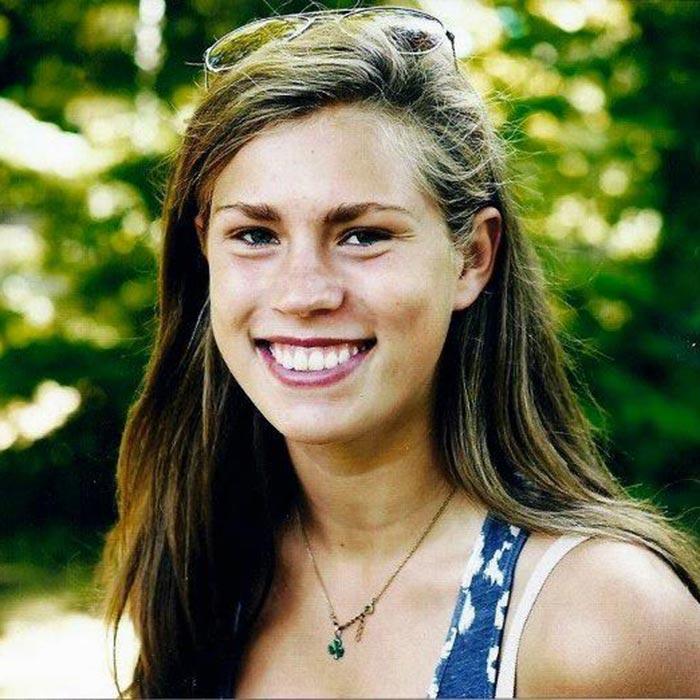
Jolie Brakey: Research Assistant
Jolie Brakey is a senior political science major with a concentration is Islamic and Middle Eastern Studies at Haverford College. She is the research assistant for Professor Rosenblatt in the Peace, Justice, and Human Rights Department. She is currently drafting her thesis that will contrast peace negotiations and accountability measures installed after civil wars and inter-state wars. She studied abroad in the spring of 2017 at the Hebrew University of Jerusalem on Mount Scopus to study security regimes and conflict resolution strategy.